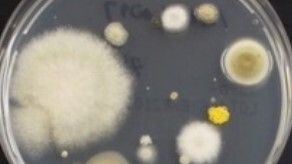
Press release -
Novel research on bacteria and fungi on face masks promotes the hygienic use of masks under the COVID-19 pandemic -- Kindai University
A research team led by Dr. Ah-Mee Park (Department of Microbiology, Kindai University Faculty of Medicine, Osaka, Japan) surveyed volunteers on their mask usage, and cultured bacteria and fungi attached to their used face masks to identify the numbers and types of the mask-attached microbes. Although most identified microbes were non-pathogenic, several potentially pathogenic microbes were also found. This is the first study to demonstrate the associations between individual lifestyles, mask usage, and microbial contaminations of the face masks. This study provides new insights into hygienic mask usage during the COVID-19 pandemic. The study was conducted as part of the All Kindai Novel Coronavirus Disease Control Project, and was published online in “Scientific Reports,” an open-access journal publishing research in the natural sciences, on Monday, July 18, 2022 (6 p.m., Japan time).
1. Key points
- The first research focused on the usage of masks and bacteria and fungi attached to the face-side and the outer-side of masks
- Recommended avoiding repeated use of masks (no more than one day) for people with weak immunity since potentially harmful microbes were found
- This study will provide new insights into the appropriate and hygienic use of face masks under the COVID-19 pandemic.
2. Overview
The Kindai University research team surveyed 109 volunteers on their mask usage (materials, duration of usage, etc.) to investigate the types of masks and how they were used. The team also cultured bacteria and fungi attached to the face-side and the outer-side of the masks to quantify and identify bacterial and fungal colonies. The results show that the bacterial colony counts were greater on the face-side, whereas the fungal colony numbers were greater on the outer-side. A longer mask usage significantly increased the fungal colony counts but not the bacterial colony counts. After investigating the relationship between gender, daily habits, and the number and types of bacteria/fungus; the results indicate no associations of the microbial number of mask-attached microbes with individual lifestyles such as transportation methods and gargling. Most of the bacteria and fungi identified in this research were non-pathogenic in humans; however, they also found several potentially pathogenic microbes, such as Staphylococcus aureus, Staphylococcus saprophyticus, Pseudomonas luteola, Mucor, Aspergillus, and Fonsecaea. Thus, people with weak immunity should avoid repeated usage and change to a new mask daily. Since potentially harmful bacteria and fungi are often found on the outer-side, we should be cautious not to wear the wrong side of a mask accidentally. These results can be utilized to raise awareness of hygienic mask usage, as wearing masks has become a social norm under the COVID-19 pandemic.
3. About publication
Journal name: Scientific Reports (Impact factor 2022: 4.996)
Research paper title: Bacterial and fungal isolation from face masks under COVID-19 pandemic
Authors:Ah-Mee Park*, Sundar Khadka, Fumitaka Sato, Seiichi Omura, Mitsugu Fujita, Kazuki Hashiwaki, Ikuo Tsunoda
*Corresponding authors
Affiliation: Department of Microbiology, Kindai University Faculty of Medicine, Osaka, Japan

